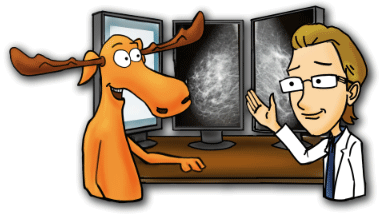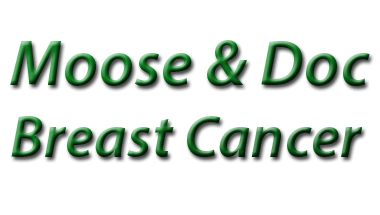What is Mastitis?
Mastitis is essentially an infection of the breast tissue. The term is widely used to cover a range of related conditions, all of which involve inflammation and/or pain in the breast tissue.
This condition most commonly occurs whilst breastfeeding. When this is the case, it is termed ‘lactation or puerperal mastitis’. So, bear in mind, if you have a painful, inflamed breast (or breasts), whilst breastfeeding than mastitis is the most likely cause.
Note: ‘Peurperal’ literally means ‘relating to the period of time following childbirth’. In contrast, when the condition occurs in non-lactating women it is often termed ‘non-puerperal’.
Symptoms
The most common cause is an over-supply of breast milk. However, a blocked breast duct can also be a cause for this condition.
The symptoms are very similar to other infections. These include:-
- Swelling and inflammation of the breast tissue
- Redness of a certain area of the breast
- Warm or hot to the touch
- Breast pain in and around the affected area
- An area of hardness or a breast lump around the affected area
- Nipple discharge
- Fever
- Fatigue
- Headaches
- Anxiety
Inflammatory Breast Cancer and Mastitis
Do not worry, the symptoms listed above are most likely to be associated with mastitis and nothing more serious. However, there is a rare, but very aggressive type of cancer called inflammatory breast cancer that has very similar symptoms.
In addition to the above symptoms, with inflammatory breast cancer, there can be:-
- Orange peel appearance of the skin
- Thickening of the skin on the breast, possibly with ridges or welts
- An inverted nipple on the affected breast
- Swollen lymph nodes under the arm of the affected breast
Due to the similarities between the two conditions, it is important to closely monitor symptoms.
If the symptoms of mastitis are not resolved within five weeks, a full medical investigation to rule out breast cancer should be initiated.
Does Mastitis increase the risk of Breast Cancer?
Other Related conditions
Importantly, ‘mastitis’ is, in fact, a general term for a breast infection. However, there are a variety of other terms that are associated with the presence of inflammation, discharge and tissue damage of the breast.
These include:-
- Subareolar abscess
- Duct ectasia
- Periductal mastitis
- Zuska’s disease
- Cholesterol granuloma
Idiopathic granulomatous lobular mastitis (IGLM)
Idiopathic granulomatous lobular mastitis (IGLM) is an uncommon chronic inflammatory breast disease. IGLM often forms a palpable breast mass that can mimic invasive breast cancer, both on a mammogram and clinical examination.
It is important to note that IGLM is a benign condition. Indeed IGLM is a breast disease that often occurs in younger women following the birth of a child. However, IGLM has not been shown to be consistently related to either breastfeeding or the use of oral contraceptives.
Treatment for Mastitis
As mentioned earlier, simple mastitis usually resolves with antibiotic treatment. Symptoms should begin to improve within 48 hours and certainly over 5 days of prescribed antibiotics. If any symptoms persist it is VERY important to see your physician as soon as possible.
Because mastitis related to breastfeeding is caused by an excess of milk blocking the ducts, regularly expressing milk and breastfeeding the baby will encourage milk flow and improve the symptoms.
If you are having problems with breastfeeding, consulting a lactation consultant to get help with breastfeeding techniques may help.
Other self-help tips are aimed at easing the symptoms and include:-
- Drink plenty of fluids to help fight the infection
- A warm flannel or warm bath to the affected area may help ease the pain
- Get plenty of rest and a good night sleep
- Take over-the-counter mild painkillers to ease discomfort and pain
- Avoid underwire bras as these can obstruct the milk ducts and cause blockages.
- Eat a healthy, well-balanced diet
A Few Questions and Answers
How can I prevent mastitis if I am breastfeeding?
The best way to prevent this condition is to get plenty of rest and also to eat a healthy, balanced diet whilst you are nursing.
Also, avoid your breasts becoming overly full with milk. If your breasts are not empty after nursing or expressing milk, or you have a plugged duct, I recommend you use warm compresses and massage to get the milk out.
Furthermore, avoid underwired or ill-fitting bras that can block the milk ducts. Lastly, ensure that the baby is properly ‘latched on’ whilst breastfeeding. Your midwife will help you with this. Another breastfeeding tip is to ensure that the baby does not favour one breast. Indeed, be sure to alternate breasts at feed times
tie a little ribbon to your nursing bra strap and alternate it to remind you.
Will I have to stop breastfeeding?
You can safely continue breastfeeding your baby or express breast milk to feed your baby during illness and treatment. Your little one is the most efficient pump you have for emptying your breasts.
In addition, your breast milk is still safe for your baby to drink. This is because any bacteria in your milk will be destroyed by the baby’s digestive juices.
Are there any Complications of Mastitis?
A breast abscess is one of the most common complications. Indeed, according to a 2013 medical research study most breast abscesses develop as a complication of mastitis whilst breastfeeding.
Furthermore, according to the above research paper, 0.4 to 11% of breastfeeding mums will develop a breast abscess or breast abscesses.
If you do develop a breast abscess whilst breastfeeding, don’t worry. Recent studies suggest that the best course of treatment is now aspiration under ultrasound. In addition, antibiotic therapy may also be necessary.
Are there any Natural Treatments for Mastitis
Firstly, medical studies suggest that probiotics may be effective in both the treatment and prevention of mastitis. Although more research is necessary, several early research studies show promising results. So, eating a diet rich in probiotics won’t hurt, or possibly take a supplement. If nothing else it may help reduce your anxiety.
Secondly, there are all sorts of natural compresses and poultices that you can apply to the painful area. There are many recipes on the internet including herbal tea, fenugreek seed, dandelion and cold cabbage leaf compresses.
Thirdly, some women will take garlic to help ease the infection. Indeed, although many think that this is an old’s wives tale medical studies do show that garlic has antimicrobial properties. However, please do not overdo it with the garlic when breastfeeding as it may upset the baby’s tummy!
Finally, lots of Vitamin C may help speed up recovery. Take plenty of fresh fruit and vegetables rich in Vitamin C or speak with your chemist about a safe supplement. Remember, do not overdo it on large doses of Vitamin C as this can cause an upset tummy for both mum and also the baby.
Further Reading
- Periductal Mastitis
- Subareolar Breast Abscess
- Inflammatory Breast Cancer
- Duct Ectasia: What does it Mean?
- Breast Cellulitis
- Full Index of ALL our Articles on Benign Breast Conditions
Return to Homepage
References
- Jin Kyung An, Jeong Joo Woo, Seung A Lee (2016) Non-puerperal mastitis masking pre-existing breast malignancy: importance of follow-up imaging Ultrasonography 2016; 35(2): 159-163. https://www.e-ultrasonography.org/journal/view.php?number=98
- Spencer JP (2016) Management of mastitis in breastfeeding women. Am Fam Physician. 2008 Sep 15;78(6):727-31. https://www.ncbi.nlm.nih.gov/pubmed/18819238


